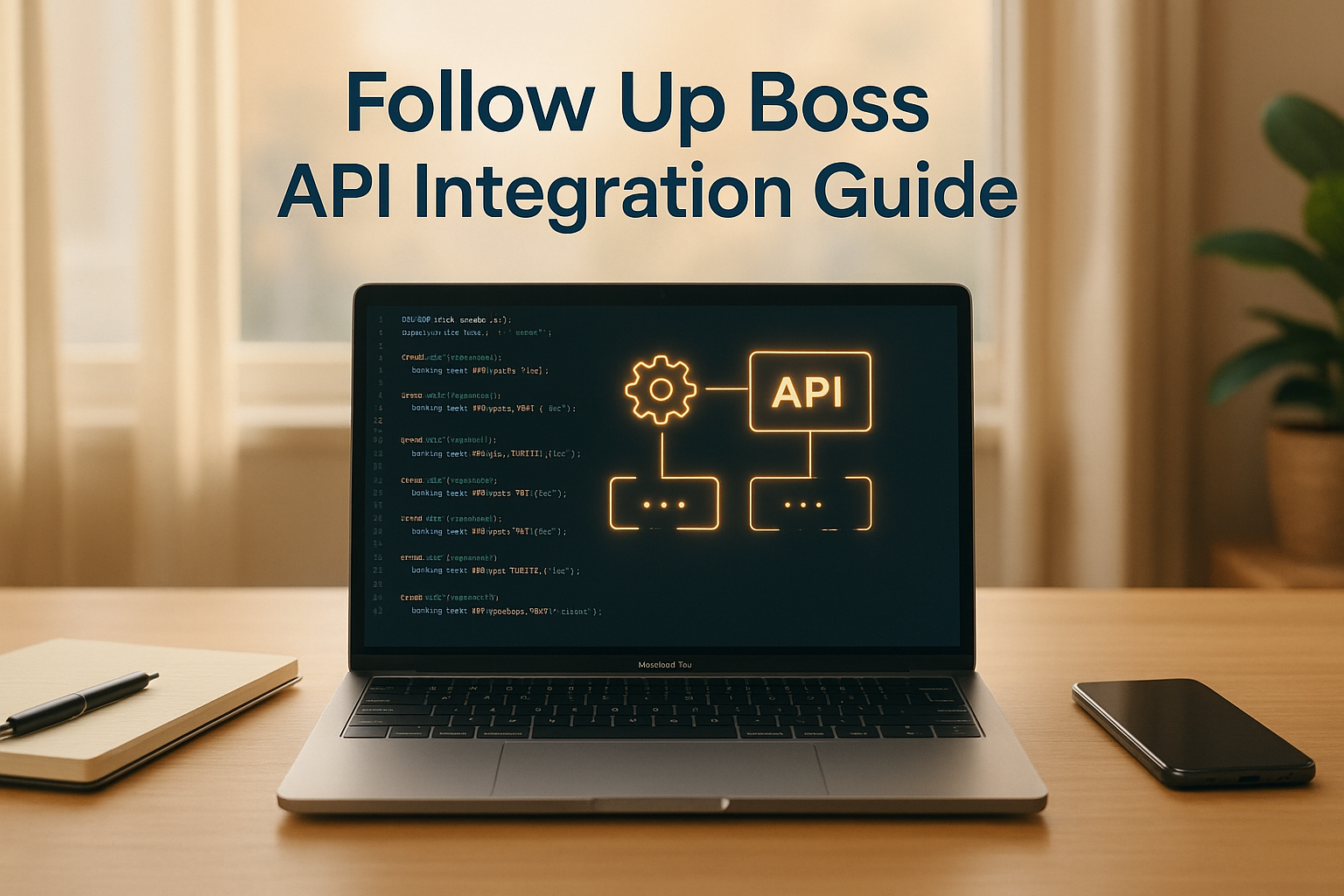Follow Up Boss API Integration Guide
Looking to integrate Follow Up Boss with your tools? Here’s everything you need to know:
- What is it? The Follow Up Boss API lets you connect your CRM with third-party apps for real-time updates, automation, and centralized communication.
- Why use it? Automate tasks, sync leads, and manage contacts without manual work.
- How to start? Get your API key from the admin panel, set up webhooks for real-time updates, and use tools like Postman or Zapier to test and automate workflows.
- Key features:
- Real-time contact and lead management
- Task automation for follow-ups
- Webhook support for instant updates
- Error handling and performance optimization
Quick Setup Steps:
- Secure your API key from the Follow Up Boss admin panel.
- Use HTTPS for secure communication.
- Configure webhooks for real-time event syncing.
- Test your integration with tools like Postman or Insomnia.
Pro Tip: Use tools like Zapier for non-technical automation or Ace AI for advanced CRM automation with voice commands and intelligent workflows.
This guide walks you through everything from setup to automation, ensuring your CRM integration is secure, efficient, and reliable.
Mastering Follow Up Boss API: Simplifying Lead Management and Automation
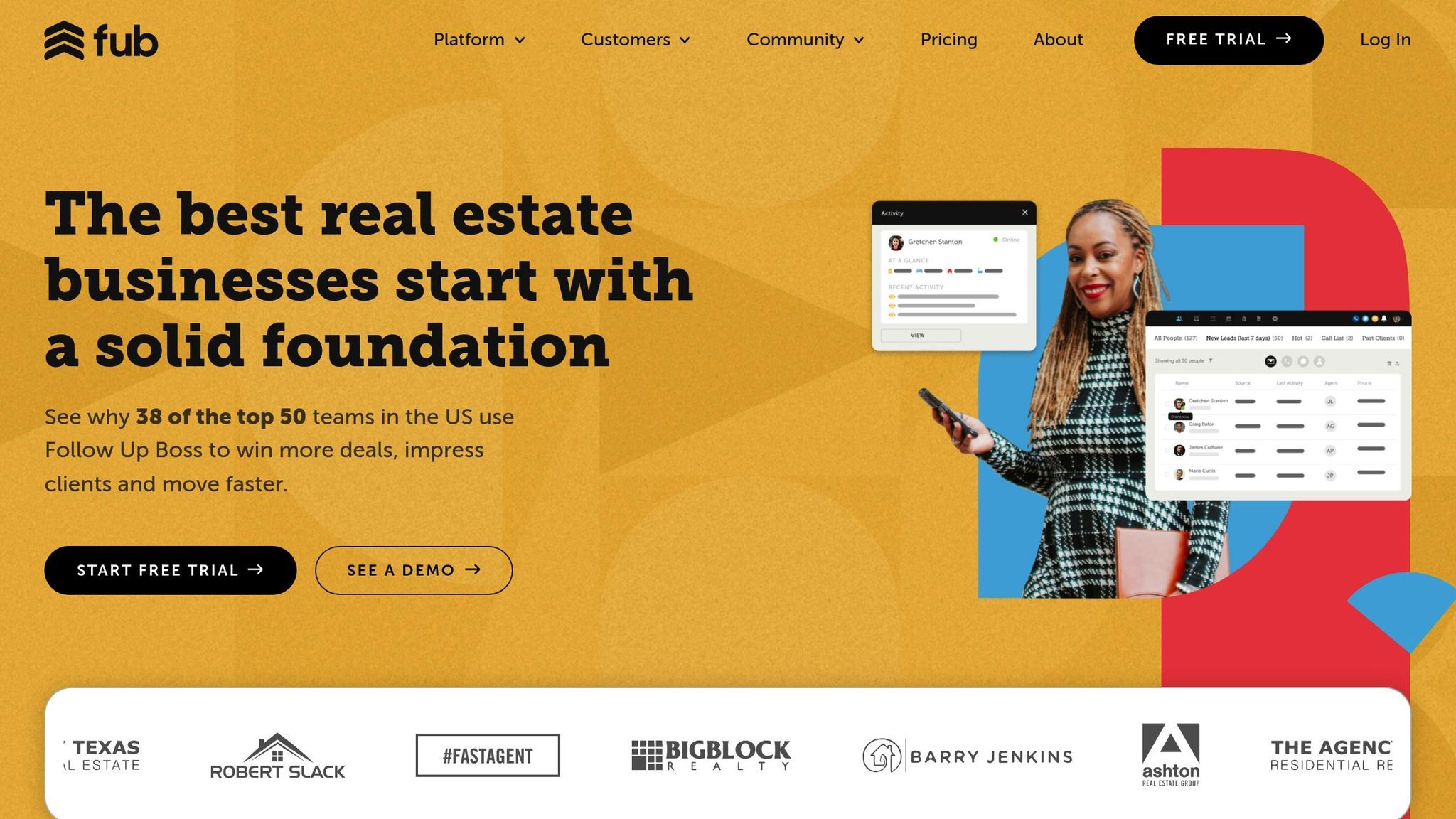
API Setup Guide
Let’s dive into how to securely integrate with Follow Up Boss using their API.
Getting Your API Keys
API keys are your gateway to accessing Follow Up Boss, so keeping them secure is critical. Here's how to get yours:
- Go to the Admin section in Follow Up Boss.
- Click on the API tab.
- Select Create API Key.
- Assign a name to your integration for easy identification.
- Copy the API key immediately - it’s shown only once.
"API Keys give access to all information in your FUB account. Keep API keys confidential."
Security Tip: Always use HTTPS for your API requests to encrypt your key during transmission. If you stop using an integration, delete its API key to protect your account.
Development Tools
Here are some tools to help you test and validate your API integration:
| Tool | Best For | Key Feature | Cost |
|---|---|---|---|
| Postman | API Testing | Collaboration | Free, $12/user/month for pro |
| Katalon Studio | Comprehensive Testing | Multi-platform Support | Free with paid options |
| Insomnia | Quick Testing | User-friendly Interface | Free version available |
Postman is a favorite among developers, with 45% preferring it for API testing. These tools are essential for verifying your setup before moving on to real-time data handling.
Webhook Setup
Webhooks enable real-time communication between Follow Up Boss and your integrated systems. Instead of constantly polling for updates, webhooks send JSON data to a specified URL whenever an event occurs.
Key Configuration Requirements:
- Use HTTPS for all callback URLs to ensure secure communication.
- Include the
X-SystemHTTP header in all requests. - Process webhook responses within 10 seconds.
- Verify requests using the
FUB-Signatureheader for added security.
Each event supports up to two webhooks, with automatic retries for up to 8 hours if the acknowledgment fails. To ensure smooth performance, separate your webhook event reception from resource-fetching tasks.
For example, CallAction’s integration showcases a practical use case: their system syncs all inbound lead activities - calls, texts, and emails - into Follow Up Boss while performing real-time DNC checks.
Pro Tip: If you’re managing webhooks for multiple accounts, include a unique Follow Up Boss account identifier in your webhook URLs. This helps route incoming data to the right place.
With your API keys secured and webhooks configured, you’re now ready to explore the core API functions.
Core API Functions
Once your API setup is complete, these core functions are the backbone of managing leads, tasks, and errors in real-time - key for seamless CRM integration.
Contact and Lead Management
The Follow Up Boss API simplifies real-time contact and lead management through its /events endpoint.
| Event Type | Triggers Automations | Best Use Case |
|---|---|---|
| Registration | Yes | New website signups |
| Property Inquiry | Yes | Listing information requests |
| Seller Inquiry | Yes | Capturing seller leads |
| General Inquiry | Yes | Generic contact forms |
| Visited Open House | No | Open house registrations |
Key Implementation Steps:
- Use the
/eventsendpoint to trigger automations for new leads. - Set the
sourcefield to your domain name, excluding "www." - Secure your server-side API key to prevent unauthorized access.
- Include agent assignments and pay-per-click (PPC) data in the payload for better tracking.
Task Automation
The API also supports task automation, making follow-up workflows more efficient and reducing manual effort.
Common Automation Triggers:
- Changes in lead stages
- Adding or updating tags
- Updates to deal stages
- Interactions with property listings
- Calendar-based events (e.g., appointment reminders)
For example, The Smith Group saw a 7% increase in re-engagement and added $45,000 in commissions during Q4 2024 by automating re-engagement workflows.
Best Practices for Task Automation:
- Use Lead Flow to route new leads effectively.
- Set up time-based triggers to ensure timely follow-ups.
- Create conditional automations tailored to specific lead behaviors.
- Design post-closing nurture sequences to maintain relationships after deals are completed.
Error Management
Effective error handling is essential for maintaining stable data synchronization and minimizing disruptions.
Response Status Guide:
| Status Code | Meaning | Recommended Action |
|---|---|---|
| 401/403 | Authentication Issue | Refresh API tokens |
| 429 | Rate Limit Exceeded | Use exponential backoff for retries |
| 5xx | Server Error | Retry after a short delay |
Error Handling Tips:
- Log errors and analyze network traffic using DevTools for detailed insights.
- Integrate monitoring tools with Slack or similar platforms for real-time alerts.
- Document error handling procedures to streamline debugging and troubleshooting.
"Clear and consistent API error handling is crucial for improving developer experience and reducing debugging time."
Here’s an example of Azure’s error response structure:
{
"error": {
"code": "InvalidParameter",
"message": "Email format invalid",
"details": "Use [email protected] format",
"target": "/users/email"
}
}
sbb-itb-b3b90a6
Simple Integration Tools
Follow Up Boss offers tools that make integration with other systems quick and efficient, building on its core API capabilities.
Make.com Setup Guide
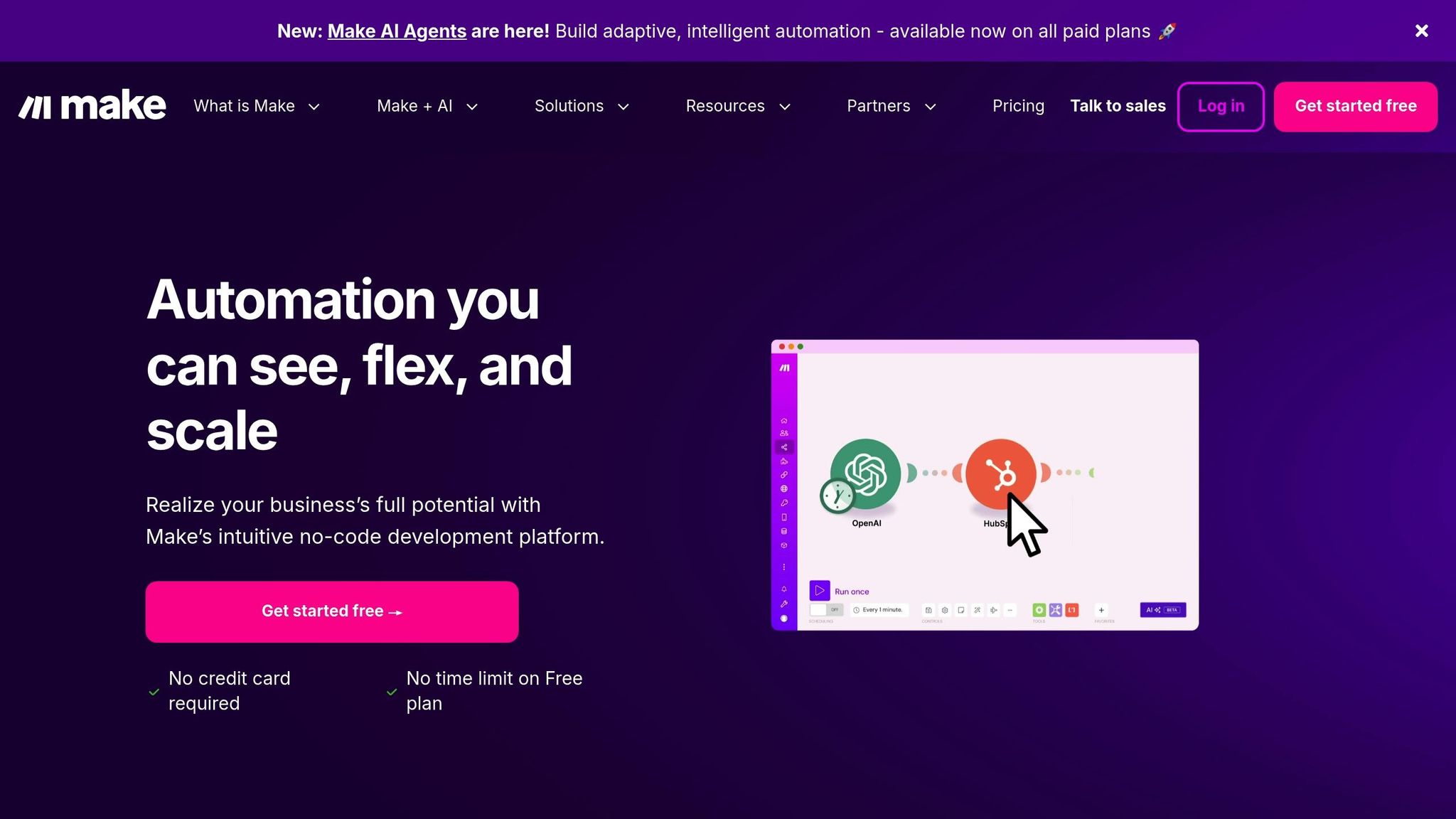
Make.com provides a user-friendly, visual platform for creating Follow Up Boss integrations without needing to write code. Here's a breakdown of how to set up features like contact syncing and lead assignment automation:
| Integration Step | Configuration | Purpose |
|---|---|---|
| Authentication | Use API Key from Admin → API | Securely connect to the API |
| Webhook Setup | Create an HTTPS endpoint | Enable real-time updates |
| Error Handling | Return 2XX response codes | Confirm successful data receipt |
| System Headers | Use X-System, X-System-Key | Track and manage requests |
Implementation Tips:
- Ensure your system is registered to obtain the necessary headers.
- Check that your endpoint response times meet recommended standards for performance.
Next, let’s see how Zapier simplifies automation even further.
Zapier Quick Start
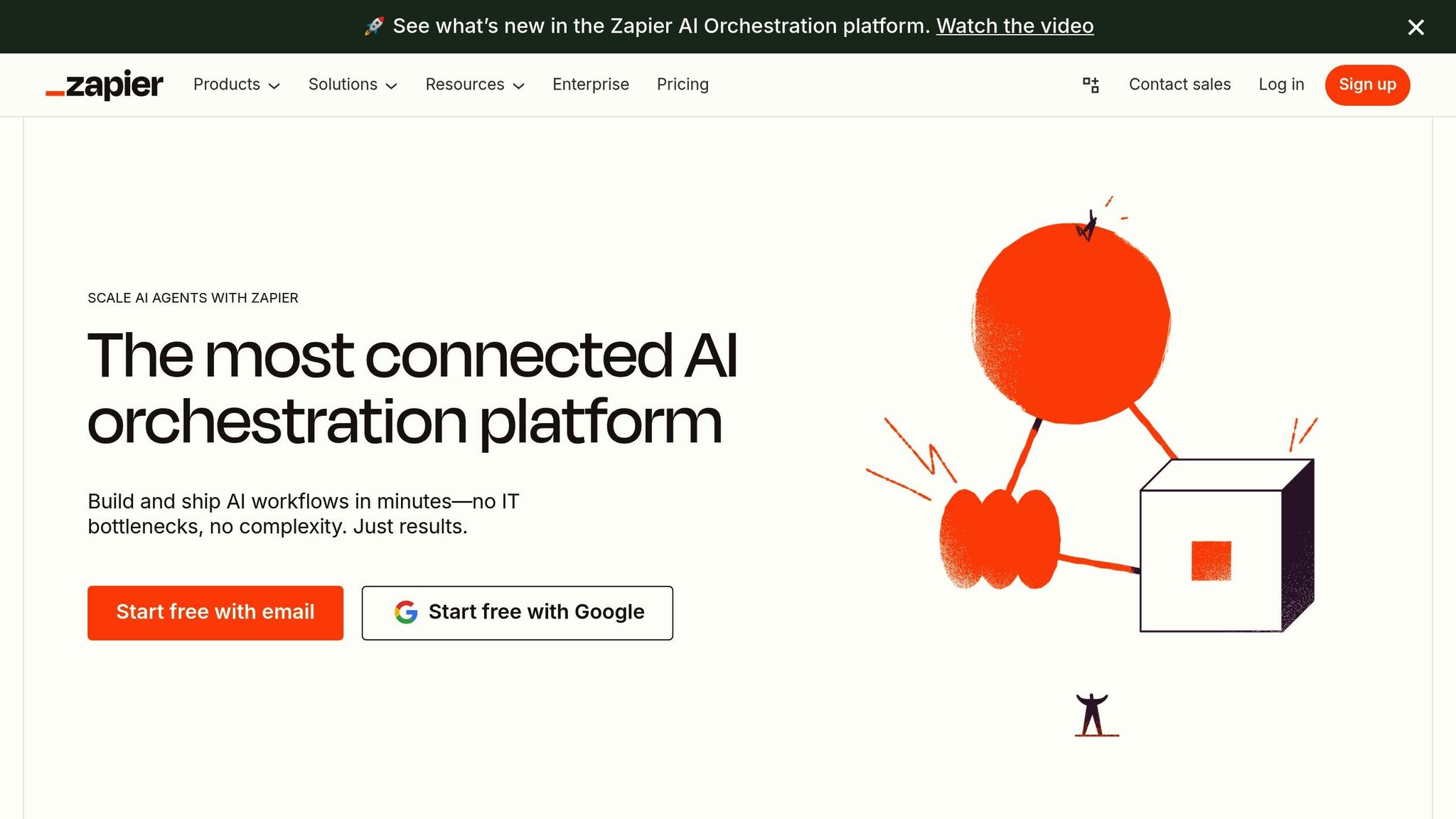
Zapier makes connecting Follow Up Boss to other tools a breeze with its simple trigger-action model. If you're setting up lead automation, here’s what to focus on:
- Use the "New Inquiry or Website Event" action to send agent alerts.
- Map up to five custom fields for each integration.
- Set specific dates and times for scheduling tasks.
- Build multi-step workflows for more complex processes.
Zapier is perfect for creating streamlined workflows without needing advanced technical skills.
Ace AI Integration
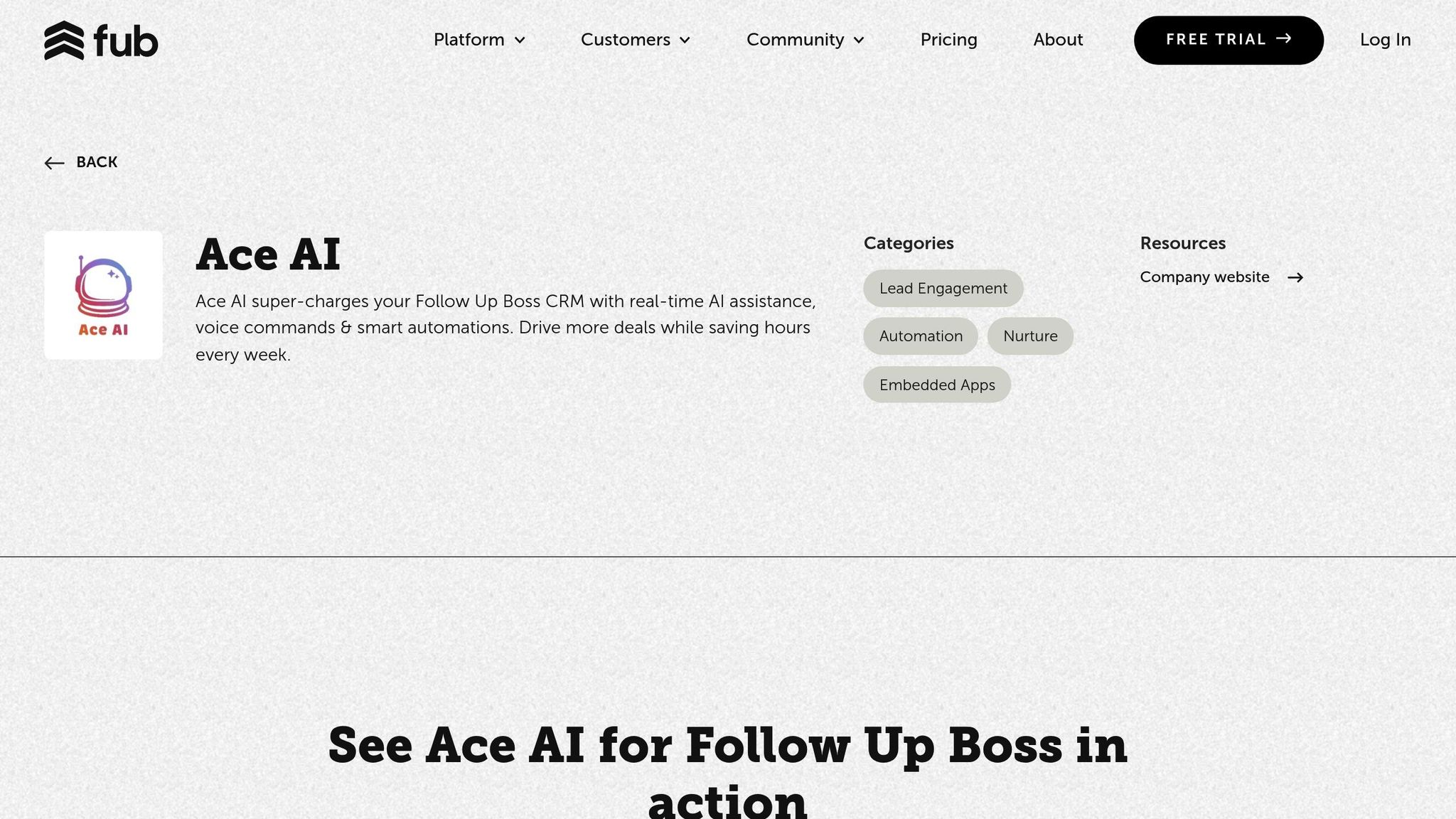
Ace AI takes Follow Up Boss automation to the next level by leveraging voice commands and advanced data processing. Here’s how it can transform your operations:
- Save Time: Teams have reported cutting operational costs by 30–40% thanks to AI automation.
- Boost Accuracy: Automated data entry and enrichment minimize manual errors.
"AI is probably the most important thing humanity has ever worked on." – Sundar Pichai
Ace AI doesn’t just automate tasks - it provides smarter workflows. Features include:
- Voice-activated updates to the CRM.
- Intelligent lead scoring to prioritize opportunities.
- Automated follow-up sequences for timely outreach.
- Real-time data enrichment for better insights.
- Smart task prioritization to focus on what matters most.
With predictions showing that 90% of businesses will adopt AI-powered CRMs by 2025, getting ahead with tools like Ace AI could give you a major competitive edge.
API Security and Performance
Once the setup and core functions are in place, it’s time to focus on optimizing your API’s performance and ensuring its security.
Speed Optimization
Improving API speed is all about smart implementation. Here are some strategies:
Data Compression and Caching
- Use Gzip or Deflate to compress payloads and reduce their size.
- Implement API caching to avoid repetitive database queries.
- Add database indexes to speed up query execution.
By combining optimized queries and caching, response times can drop dramatically - from 1.5 seconds to under 500 milliseconds.
Load Management
To handle large datasets and prevent system overload, consider these techniques:
- Pagination
- Filtering
- Load balancing
- Rate limiting
Security Standards
Securing your API is non-negotiable. Use these measures to protect your integration:
| Security Measure | Implementation | Purpose |
|---|---|---|
| API Keys | Store in environment variables or secure vaults | Prevent exposure |
| Access Control | Apply the principle of least privilege | Reduce risks |
| HTTPS | Encrypt data | Ensure data protection |
| Key Rotation | Rotate every 30-90 days | Maintain security |
"API keys are the first step in the authentication process. They identify whether calls submitted to the API are valid, confirming the identities of requestors and ensuring they have the permission to request access." - Ravi Das, ML Tech Inc.
A few best practices to keep in mind:
- Never embed API keys in client-side code.
- Use unique identifiers for webhooks.
- Include X-System and X-System-Key headers.
- Maintain detailed logs of API activity.
Usage Tracking
After optimizing for speed and security, continuous monitoring ensures your API integration stays reliable.
Key Metrics to Monitor:
- Response time and latency
- Request rates and throughput
- Error rates and their types
- System uptime (aim for 99.9%)
Real-time monitoring should include alerts for:
- Unusual activity patterns
- Performance dips
- Security issues
- Rate limit breaches
"API monitoring ensures the performance, reliability, and security of critical access points." - Caitlin Halla, Observability Developer Evangelist at Splunk
Next Steps
Main Points Review
Key Setup Essentials
- Use HTTPS encryption to keep API calls secure.
- Authenticate using the account owner's API key.
- Ensure compliance with rate limiting to avoid disruptions.
- Implement data compression and caching for efficiency.
Key Integration Elements
- Configure webhooks for real-time updates.
- Set up error handling and logging to track issues effectively.
- Apply security protocols and monitor for potential threats.
- Focus on performance optimization for smooth operation.
Implementation Guide
Now that the essentials are clear, follow these steps to deploy your integration:
- Initial Setup: Start with a trial account to test and validate API responses.
- Team Preparation: Avoid duplicate notifications, assign individual user accounts, enforce security measures, and set up monitoring tools.
- Testing and Deployment: Keep an eye on response times, error rates, synchronization accuracy, and overall system performance.
Ace AI Features
Once your integration is in place, Ace AI takes automation and accuracy to the next level. Here's what it brings to the table:
Integration Benefits
- Specifically designed for Follow Up Boss, offering deep, seamless automation.
- Self-serve onboarding with automatic workflow mapping for quick setup.
- Enterprise-grade security with PII anonymization to protect sensitive data.
- Delivers context-aware insights by analyzing CRM data.
"Ace AI is built from the ground up for Follow Up Boss - no generic CRM connectors, no half-baked integrations. Our laser focus means deeper automation, richer insights, and instant self-serve onboarding the moment you connect." - Ace AI Website
| Feature | Capability | Benefit |
|---|---|---|
| Real-time Sync | Instant data updates | Eliminates manual entry |
| Smart Workflows | Automated task management | Reduces operational overhead |
| Voice Commands | Hands-free CRM updates | Improves field efficiency |
| Security | SOC-2 ready infrastructure | Ensures data protection |
For even better results, consider adding the Ace Intelligence add-on. It introduces AI-powered custom fields and advanced automation within Follow Up Boss, starting at $25/month per 5,000 contacts.
FAQs
How can I securely integrate with the Follow Up Boss API and protect my API keys?
To ensure the security of your Follow Up Boss API integration and protect your API keys, keep these key practices in mind:
- Restrict API Key Usage: Configure your API keys to work only with specific IP addresses or referrer URLs. This way, even if a key falls into the wrong hands, its misuse can be limited.
- Store Keys Safely: Never hardcode your API keys directly into your code or include them in URLs. Instead, rely on environment variables or secure storage solutions to keep them out of reach.
- Rotate Keys on a Schedule: Regularly create new API keys and update them in your systems. Once updated, delete the old keys to reduce the risk of unauthorized access.
Adopting these practices helps to bolster the security of your API integration and safeguards your sensitive information.
What are the best practices for managing errors and improving performance when using the Follow Up Boss API?
To ensure seamless integration with the Follow Up Boss API, it's important to prioritize both effective error handling and performance tuning.
When it comes to error handling, set up robust logging systems to track HTTP status codes and error messages. This makes it easier to pinpoint and fix problems. Pay special attention to common status codes like 400 (bad request) and 404 (not found), ensuring your application responds appropriately. Additionally, consider using webhooks for real-time updates instead of relying on frequent polling. This approach reduces unnecessary strain on system resources and improves overall efficiency.
For performance optimization, aim to reduce payload sizes and fine-tune database queries. Techniques like indexing and selecting only the fields you need can significantly enhance query speed. Whenever possible, implement asynchronous processing to make your application more responsive and minimize delays during API interactions. By adopting these strategies, you’ll build API integrations that are both efficient and dependable.
How do I set up webhooks for real-time updates in Follow Up Boss?
To set up webhooks for real-time updates in Follow Up Boss, you’ll first need to create a webhook endpoint in your application. This endpoint will act as the receiver for JSON payloads sent by Follow Up Boss whenever certain events occur - like a lead being created or updated. Make sure your endpoint is configured to handle HTTP POST requests and can properly process the incoming data.
Once your endpoint is up and running, the next step is to register it with the Follow Up Boss API. To do this, send a POST request to the webhooks endpoint, including your webhook's URL and the specific event types you want to monitor. This setup allows you to automate processes such as updating your database or triggering notifications based on real-time changes, saving you from the hassle of constant polling.
Leveraging webhooks ensures your workflows stay efficient and responsive to updates as they happen.
